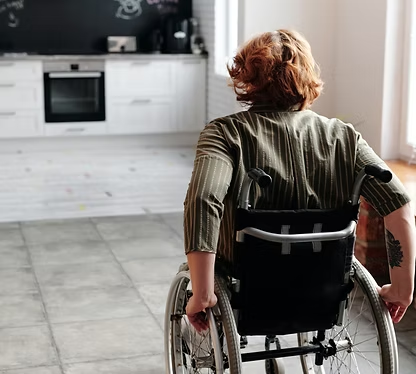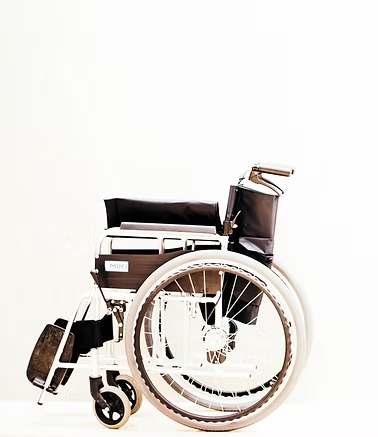
Bed Sores & Pressure Ulcers
Bed sores & pressure ulcers are effectively treated at Encompass Healthcare. Our disabled patients heal with expert Dr. Bruce Ruben.
Bed Sores & Pressure Ulcers
A bed sore, also known as a pressure ulcer, a pressure sore or an ulcer is damage to the skin or underlying tissue that results in a non-healing wound or sore. It usually occurs in disabled patients or over a bony prominence as a result of pressure or pressure in combination with shear and/or friction. They are commonly found overlying the sacrum, coccyx, (buttock areas) heels, or hips, but other sites such as the elbows, knees, ankles, back of shoulders, or the back of the cranium can be affected.

A bed sore most commonly develops in individuals who are not moving about, such as those being bedridden or confined to a wheelchair and we have many case managers with whom we work.
Because quadriplegics & paraplegics lack sensation, they can’t feel when it’s time to reposition themselves to encourage normal blood flow. At Encompass Healthcare, we can successfully treat and heal your bed sore.
Dementia and Bed Sores
Pressure sores can also develop in patients suffering from certain brain disorders and dementia. In these cases, the brain is unable to make the connection between feeling the discomfort of staying in a position for too long and making a position adjustment to alleviate the pressure.
Patients can make use of special beds that automatically inflate and deflate to alternatively take pressure off various parts of the body. This is called a Clinitron bed. In addition, special offloading pillows are available for wheelchairs that perform the same function.

Treatment for A Bed Sore
We use a variety of treatment modalities depending on severity, longevity, and the other underlying conditions that Dr. Ruben assesses as the reasons why the bed sore isn’t healing. Most commonly malnutrition and ischial or sacral bone infection are the focus of the first phase of assessment and treatment. Most of these sores will not heal without plastic reconstructive surgery followed by a period of up to 6 weeks in a Clinitron bed for offloading of the surgical site until complete closure is accomplished.
Possible course of care for patients with only pressure as the
condition for the pressure sore:
Offloading is an important factor to consider in the treatment of pressure sores. It’s also the biggest challenge because it involves extreme scrutiny and diligence to make sure the patient is moved periodically to stimulate circulation and keep direct pressure off the wound. At Encompass Healthcare we offer a full range of complete offloading orthotics and surfaces. Often we refer an occupational therapist to the patient’s home for the evaluation and modification of surfaces so that pressure sores can be avoided.
A separate important consideration is urine and stool incontinence in patients without bladder and bowel control. Often, plastic reconstructive surgery will not be offered without the patient first undergoing a temporary or permanent bowel diversion procedure (colostomy.)
Pressure sores of the buttocks are the most lengthy and challenging wounds to heal. We have a proud and successful healing rate for these sores at Encompass Healthcare for patients willing to stay on the comprehensive course of care.
Possible Course of Care for Pressure Sores with Underlying Bone Infection and Malnutrition: Long term IV antibiotics.
- Long term IV antibiotics.
- Nutritional support to correct malnutrition states. This may include tube feeding or IV nutrition.
- Medications to reverse catabolic states of malnutrition: anabolic steroids and/or growth hormone.
- Medical management of all other medical co-morbidities, i.e. diabetes, venous insufficiency, peripheral artery disease (PAD), etc.
- Possible diverting colostomy.
- Plastic reconstructive surgery.
- Complete bed rest in a Clinitron Bed until incision site healing is complete; typically 3-6 weeks.
At Encompass Healthcare, we provide hospital-level technologies and treatments for pressure sores including all forms of debridement, lymphedema management, hyperbaric oxygen therapy, IV antibiotics, skin substitutes, skin grafts, and surgical flaps.
Book an
appointment
today!
Experience our care and understand why we are different.
